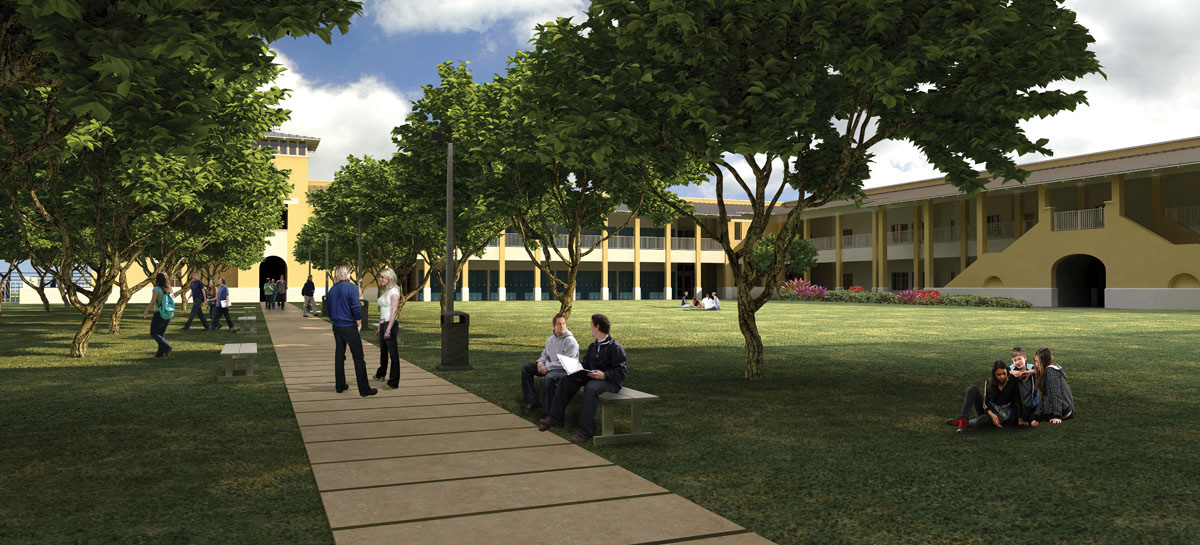 After 60 years of educational excellence, Riviera Schools recently announced that it will be expanding to offer high school grade levels. Riviera will open its brand new Riviera Preparatory School campus in 2011 and continue its strong commitment to providing a diverse educational experience with a focus on academics. Riviera’s environment is designed to guide students to reach their potential and to prepare them for higher education. The school strives to challenge each student in a rigorous academic setting and encourage each pupil to succeed. Once the new campus opens, each student in 6th Grade and above will immediately begin working with a college counselor to establish an educational vision, outline a set of goals and develop a plan to reach those goals. Riviera will provide its students with a wide range of courses including many electives, advanced placement courses and honors courses in various disciplines. By allowing students to explore unique areas of interest and develop their strengths, Riviera will help them be active learners. These are key components of Riviera’s holistic approach to education, which incorporates a sensitivity to the needs and qualities of each student. For more information, visit RivieraSchools.com.
After 60 years of educational excellence, Riviera Schools recently announced that it will be expanding to offer high school grade levels. Riviera will open its brand new Riviera Preparatory School campus in 2011 and continue its strong commitment to providing a diverse educational experience with a focus on academics. Riviera’s environment is designed to guide students to reach their potential and to prepare them for higher education. The school strives to challenge each student in a rigorous academic setting and encourage each pupil to succeed. Once the new campus opens, each student in 6th Grade and above will immediately begin working with a college counselor to establish an educational vision, outline a set of goals and develop a plan to reach those goals. Riviera will provide its students with a wide range of courses including many electives, advanced placement courses and honors courses in various disciplines. By allowing students to explore unique areas of interest and develop their strengths, Riviera will help them be active learners. These are key components of Riviera’s holistic approach to education, which incorporates a sensitivity to the needs and qualities of each student. For more information, visit RivieraSchools.com.
Baby Steps
Are you unsure about your infant’s growth and development? Do you wonder if they are meeting their developmental milestones in a timely manner? While some parents may expect too much, others may not realize their infant requires early intervention to address developmental delays. From the moment they are born, an infant should be acquiring social skills, language skills and gross & fine motor skills. By 12 months, babies should be able to reach out to adults to get their attention, smile at their own accomplishments, demonstrate affection, wave bye-bye, respond to “no,” recognize familiar words, respond to simple questions with gestures & facial expressions, pick up small objects using their thumb & finger, clap hands, feed themselves finger foods, bang two toys together, sit down from standing position, stand alone, and walk with assistance. By 24 months, a child should be able to show independence by putting on clothes and washing & drying hands, exhibit curiosity, experience fear when separated from caregiver, enjoy playing next to another child, imitate another child’s play, put two or more words together, ask for items by name, follow single-step directions, scribble & imitate simple strokes, take off socks & shoes, take things apart and put them back together, jump with both feet, move their body with music, walk stairs with help, run and attempt to kick a ball. If you have concerns or questions regarding your infant’s development, contact Key Therapy. We’re here to help.
 ›Ivette Fernandez, MS, CCC-SLP, is a Speech Language Pathologist at Key Therapy. She and her team aim to make Key Biscayne residents as healthy as they can be in multiple aspects of life. For more information, call 305.361.1166 or visit Key-Therapy.com.
›Ivette Fernandez, MS, CCC-SLP, is a Speech Language Pathologist at Key Therapy. She and her team aim to make Key Biscayne residents as healthy as they can be in multiple aspects of life. For more information, call 305.361.1166 or visit Key-Therapy.com.
 “It’s what you learn after you know it all that counts.”
“It’s what you learn after you know it all that counts.”
— Harry S. Truman
 Brain Overload
Brain Overload
Cognitive overload results in forgetfulness and ineffective retention of materials learned. To avoid it, keep learning sessions to less than 45-minute bursts, with active practice.
 Do It
Do It
Experts agree that the old saying “Practice makes perfect” is very true. Encourage those around you to practice the things they learn frequently. They will only get better.
 Quick Read
Quick Read
Increasingly, people are getting used to quick, information-packed reads. The days of 10-page news articles are long gone, unless they have big pictures on every other page!











